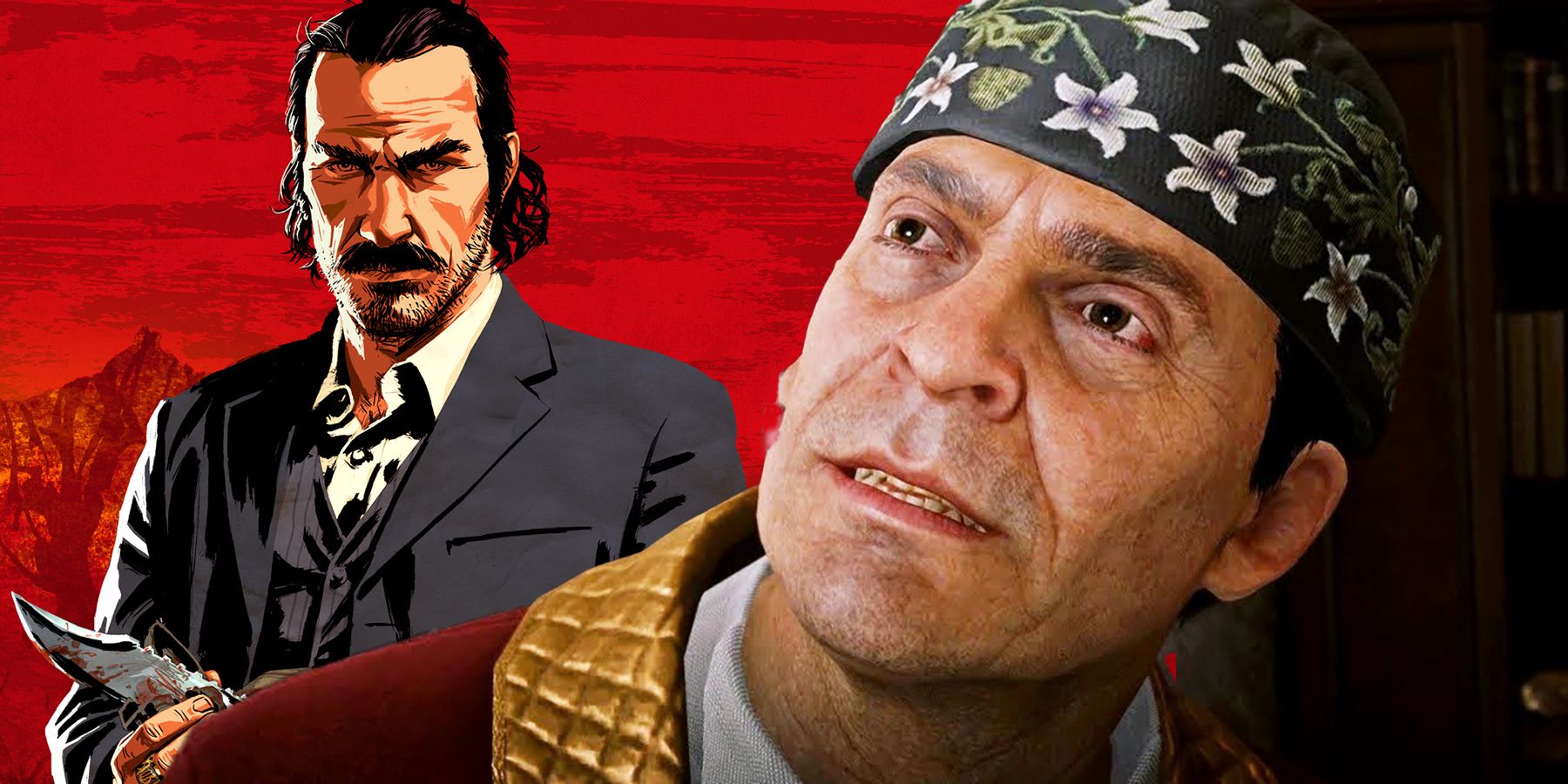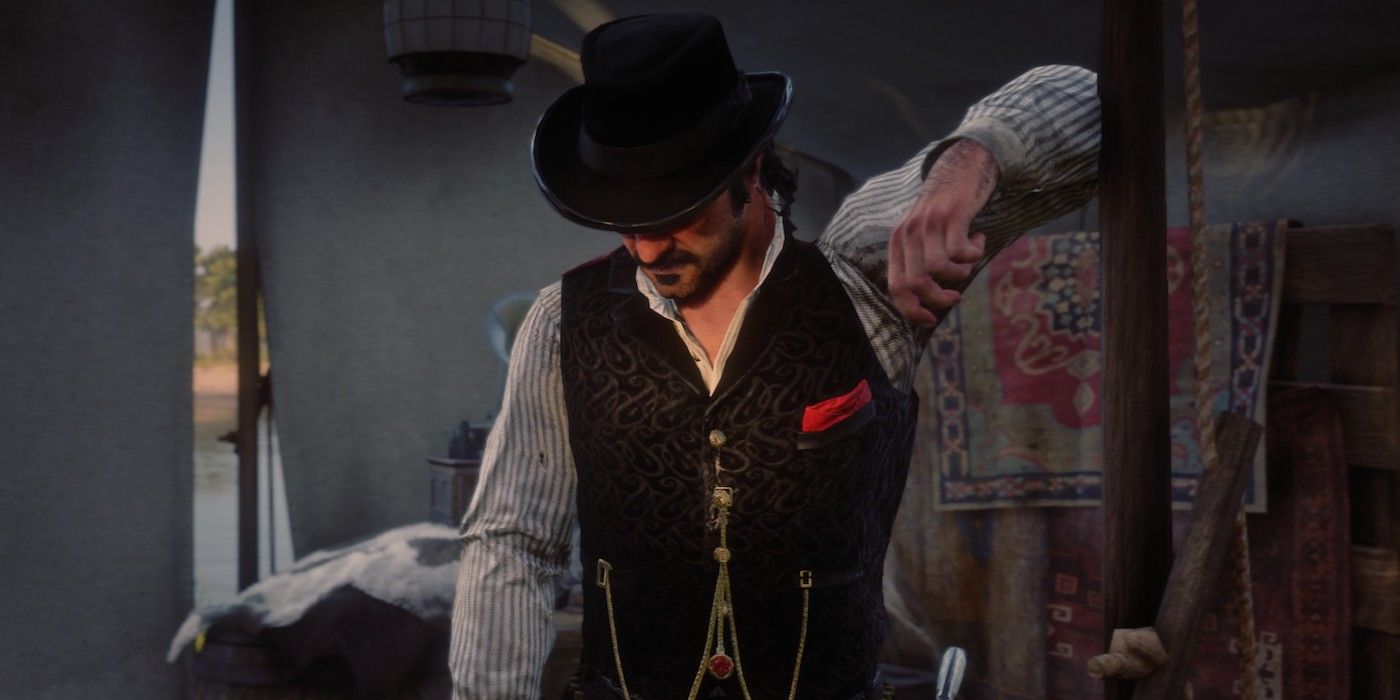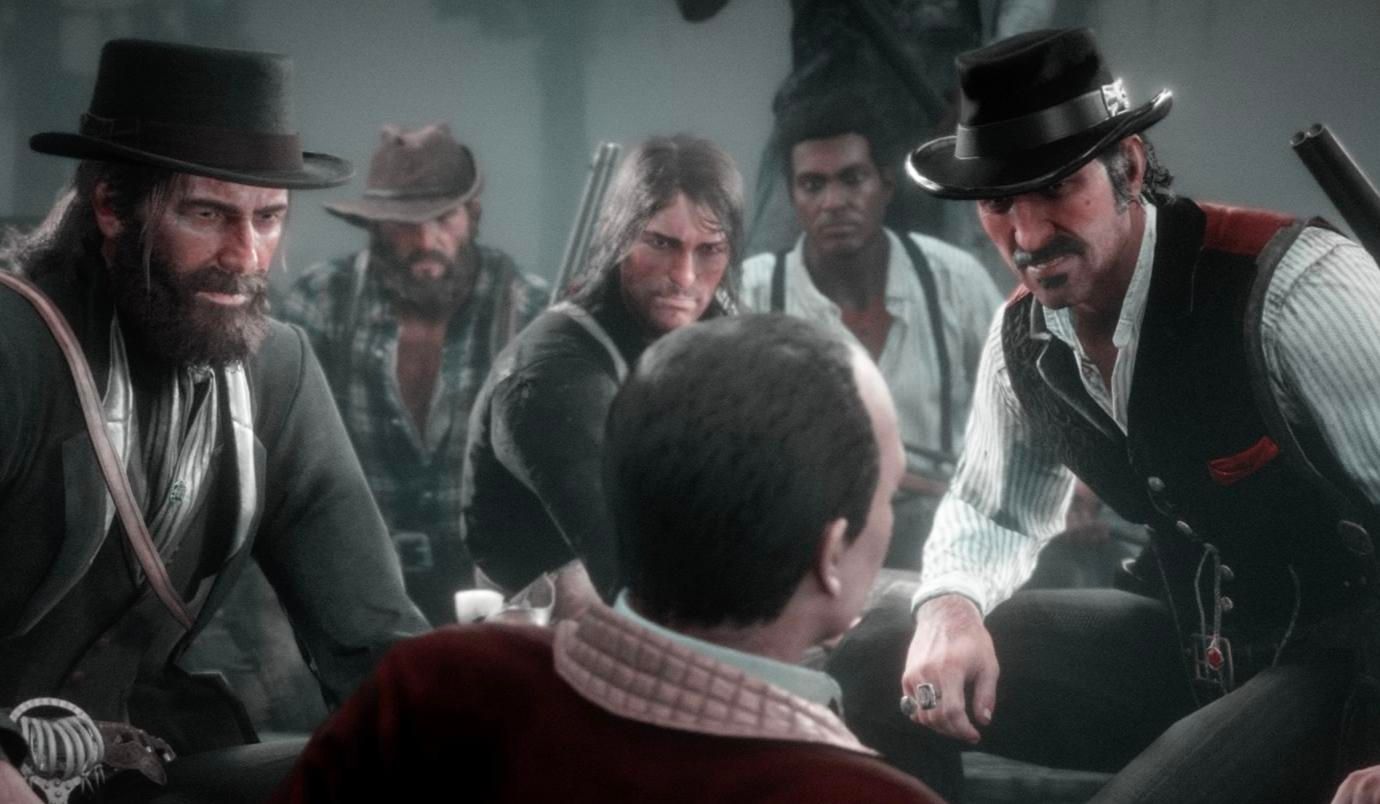As many no doubt know, Red Dead Redemption 2 takes a strong, long-form storytelling approach where little nuances have long-lasting impacts. It can be seen in how Dutch’s last words define the Red Dead franchise, how Jack Marston’s rivalry with Edgar Ross defines their roles in the changing world, and so on. There are moments, of course, where a slight action is predictive in a way of what’s to come.
One of those moments takes the shape of a character in Red Dead Redemption 2: Angelo Bronte. This character is at the heart of Jack’s kidnapping, a robbery gone wrong for the Dutch Van Der Linde gang, and a person who shows up and stops Dutch at every possible chance. Indeed, Dutch’s hatred of Bronte is warranted, but in those moments where the former feeds the latter to a crocodile, with everything that led up to it, it’s clear that Bronte was Dutch’s future, good or ill.
Red Dead Redemption 2 – A Good Ending for Dutch is a Bad One
To be clear, there is one major difference between Dutch and Bronte, one that is big in theory but small in practice. Bronte was a crime lord, a gangster inspired by the real-life Angelo Bruno, and a man described by Arthur as a “lizard in a suit.” He ran Saint Denis and manipulated the businesses, mayor, high-ranked state officials, police, and so on. All of this stands against Dutch’s way of life in Red Dead Redemption 2, as precious freedom was his goal, yet that’s where the line gets blurred.
If Dutch got the ending for the gang he wanted, they’d have scored a major robbery, escaped to Tahiti, and lived out their days in peace—yet peace really isn’t part of their way of life. If they did not get in trouble with locals, then it would be with themselves. If Dutch found the gang a small home, it would be him at the center of it, pulling the strings much like Angelo Bronte does in Saint Denis. Indeed, perhaps why Bronte gets under Dutch’s skin so much is because Bronte is what Dutch truly wanted.
Tahiti was just one of many plans to “obtain freedom” and a good life, but by definition, it’s the power Dutch wanted. At the end of Red Dead Redemption 1, Dutch highlights how he cannot fight his own nature; no matter how precious freedom and community was to him, he could not have stopped himself from becoming the Bronte of his own little town, in any sort of “good” ending for Dutch. There was no way for Dutch to stop fighting a system that rejected him and one that, deeply rooted in his psyche, he wanted to be part of. So, he found his own system in his gang and meaning, even as that meaning slowly washed away.
Under the guise of politeness and society, in which even kid Jack Marston and Dutch (somewhat) fall for his charms, Bronte is a ruthless killer and criminal. Under the guise of doing what’s best and chasing freedom for those who cannot themselves, Dutch is a criminal and he knows it—but he wants to pretend he is better and convince himself he is the hero. Bronte has a strong sense of superiority, looking down on all even Dutch, once commenting on how Dutch walked into his house without a bath. Dutch, having been the educated leader of the Van Der Linde Gang in RDR2, felt slighted by this and put to shame in many ways, no matter how he kept up the art of conversation.
Red Dead Redemption 2 – A Bad Ending for Dutch is the Same Ending as Bronte
Dutch’s ultimate plan didn’t work. The gang didn’t get to Tahiti. It was never going to get to Tahiti. Dutch survives Red Dead Redemption 2, though not many escape the way of life Dutch's vision created for them, and he eventually meets his end in the first game—having pursued and fought for an ideal that he could never live up to, condemning all those he even kept in contact with as the systems around them moved on, one way or another.
At the end of Bronte’s story, he gains consciousness, insults Dutch, and is subsequently drowned by him and then tossed to a vicious Red Dead 2 alligator. The gang is shocked, of course, but this is not the only thing Dutch has ever done to show them that he has lost his way, but despite this, the loss of Hosea, and everything that obviously pushes Dutch off this path, he maintains the system.
After Bronte’s death, he is replaced within the crime world, and the system moves on. For Dutch’s gang, they are still defined by the system Dutch built, long after it falls apart. It’s why the Pinkertons pursue John Marston, it’s why the entire events of Red Dead 1 happen, and it’s why Jack Marston probably doesn’t get a happy ending. Edgar Ross may be dead, but the system goes on.
Both Bronte and Dutch built something, no matter how differently they built it, and it would go on to define the city of Saint Denis and all the members of the Dutch Van Der Linde gang for the rest of their life. Perhaps Bronte was more successful, perhaps Dutch could never be Bronte, but it is Dutch’s pursuit of this power-masked-in-ideals that ultimately results in the deaths of everyone he loved, from Hosea to John Marston.
Red Dead Redemption 2 is available now for PC, PS4, Stadia, and Xbox One.



